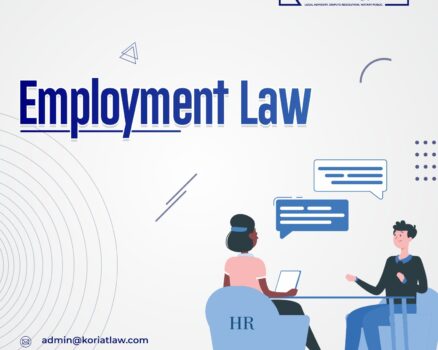The registration and licensing of a vehicular tracking company in Nigeria are regulated. The process, procedure, requirements and costs for registering and obtaining the operational license are discussed below in a question and answer format:
What are the requirements for registering a vehicular tracking company in Nigeria?
There is no special requirement for registering a vehicular tracking company in Nigeria except those provided for companies intended for general business. It is however useful to note that where the company has a foreign participation or intended as a private security company, then the company must be registered with 10,000,000 share capital and the foreigner must present his or her business permit as part of incorporation requirements.
In addition to the above, the general requirements for setting up a company (including a vehicular tracking company) in Nigeria are as follows:
- Two proposed names for the company;
- A proposed registered address in Nigeria;
- Names, contact address, email address, phone number and means of identification (preferably international passport) of the shareholders and directors;
- The amount of share capital (please note that the share capital must not be less than 10 million share capital for a company with foreign participation or private security company);
- The division of the company’s shares amongst the shareholders,
- The description of business;
- The details of Company Secretary;
- Signatures of shareholders and directors (each of the shareholders and directors need to sign on a separate paper and scan for submission);
- Any other documents (such as work permit or business permit, etc.);
Is there any minimum share capital requirement for a Vehicular Tracking Company?
There is no minimum share capital requirement for registering a vehicular tracking company in Nigeria except for the minimum requirement provided for companies generally.
By virtue of the Companies and Allied Matters Act 2020, a vehicular tracking company may be registered as private limited company (LTD.) or public limited company (PLC). The minimum share capital of a private limited company is 100,000 whilst that of a public limited company is 2,000,000. All share capital must be issued and paid up.
However, where the shareholders of the proposed vehicular tracking company will include a foreigner, then the company must be registered with 10,000,000 paid up share capital. Also, where the vehicular tracking company is intended to be registered as a private security company, then its share capital must be 10,000,000.
How long does it take to register for a Vehicular Tracking Company?
Incorporation process usually takes between one (1) day to three (3) days. The Corporate Affairs Commission (“CAC”) has a fast track desk called “1-day incorporation desk” which attracts extra charges for a fast track.
What is cost of incorporating a Vehicular Tracking Company?
The cost of incorporation (including a vehicular tracking company) depends on the amount of share capital. For instance, as mentioned above, a company with foreigners as shareholders must be registered with not less than 10 million share capital. The registration of a 10 million-share capital attracts a total cost of about N135,000 (One Hundred and Thirty-Five Thousand Naira), broken down as follows:
(a) Non-refundable N55,000 (Fifty-Five Thousand Naira) payable to the CAC;
(b) Non-refundable N75,000 (Seventy-Five Thousand Naira) payable to the Federal Inland Revenue Service as stamp duty on the 10 million share capital; and
(c) N5,000 (Five Thousand Naira) as miscellaneous expenses for Name Reservation with CAC, Bank/Remita charges, telephone calls, internet, etc.
Please note that the incorporation may be higher or lower depending on whether the share capital is higher or lower than 10,000,000.
Is there any regulatory License for Vehicular Tracking Service Companies in Nigeria?
Yes. The National Communications Commission (“NCC”) has the prerogative to license companies seeking to undertake automated vehicular tracking services (“AVTS”). The AVTS licence is valid for the provision and operation of Public Mobile Communications – vehicular tracking services within Nigeria.
What is the procedure for applying and obtaining the Vehicular Tracking Service License?
The applicants are required to obtain the application Form from the NCC, fill it and produce extra copy of the Form.
In addition, the applicants must attach copies of the following documents:
- Certificate of incorporation or Registered Business Name;
- Tax clearance certificate, if any;
- Certified true copy of the Memorandum and Articles of Association of the company;
- Certified true copy of CAC document containing the list and particulars of directors;
- Two (2) passport photographs of authorized representatives;
- Certificate of qualified technical staff;
- Brief summary of the proposed business or service;
- Passport photograph of the Director(s) of the Company or Proprietor(s) of the Business Name;
- Certified true copy of the Company’s registered address;
- Evidence of an agreement or a Memorandum of Understanding (MOU) entered between the company and any of the licensed Aggregators;
- A security clearance report from the Department of State Security (DSS); and
- A copy of the applicants’ service level agreement.
What is the lifespan of the Vehicular Tracking Service License?
The tenure of the license is five (5) years, in the first instance, and may be renewed for a further period of five (5) years. The license will expire or be revoked upon giving twelve (12) months’ notice to the NCC of the licensee’s intention not to renew the license.
The renewal of the licence is subject to the payment, within six months before the expiry date of the licence, of such licence fees as the NCC may specify as well as the fulfilment of all the terms, conditions and provisions of the licence, National Communications Act, the Wireless Telegraphy Act and Regulations.
What are the financial requirements for Vehicular Tracking Service License
The Application fee is N1,000 whilst there is an administrative fee is N25,000 (being 5% of the license fee). The License Fee is N500,000. All fees are payable to the NCC through Remita.
There is also an annual operating levy which is two and half (2.5%) per cent of the licensee’s audited net revenue payable within three months after the end of the first year of the licence and thereafter quarterly on the licensee’s assessed net revenue, within thirty (30) days of the end of such quarter to be adjusted immediately on receipt of the audited annual financial statements of the licensee.
There are frequency charges for the vehicular tracking service spectrum. The licensees usually apply and pay quite separately for any frequency assignment in regard to any service that is ancillary to the vehicular tracking service.
Is a Vehicular Tracking Service License transferrable?
The vehicular tracking service license is personal to the licensee and therefore a licensee cannot transfer or assign its licence to another party (including the licensee’s subsidiary or associated companies) without the prior written approval of the NCC. The NCC may decline any application for transfer of licence and provide reason in the event of non-approval or grant approval for transfer of license subject to conditions.
Are there other authorization, permits or licenses a Vehicular Tracking Service Provider required to obtain?
A vehicular tracking service provider is required to obtain all other necessary licences and non-telecommunication permits including building permits and other permits required to build, implement, modify and remove installations and buildings in accordance with relevant applicable Laws and Regulations.
Are there limitations to the use of the License?
The scope of operational use of the vehicular tracking service license is to install and operate fixed and mobile data network for the purpose of providing vehicular tracking services. “Fixed and mobile data network” means an interconnection of transmitting and receiving devices that will enable the position of vehicles to be determined.
However, the limitations on the use of the vehicular tracking service license are as follows:
- The network shall not be used to transmit or receive voice signals or telephony services;
- Individual subscribers shall not be assigned National Numbering Plan;
- The licensee shall employ the frequencies assigned to it under vehicular tracking service licence solely and entirely for the provision of the services for which this licence is granted and shall not employ the said frequencies for any other purpose.
- The licensee shall not re-assign the whole or any part of the frequencies assigned to it to any other person or operator without the approval of the Commission.
Are there other regulatory registrations or approvals?
There is a requirement to register with the National Information Technology Development Agency (“NITDA”) pursuant to the Guidelines for Registration of ICT Service Providers/Contractors for Delivery of IT Services to MIDAS. All indigenous firms or organizations registered with the Corporate Affairs Commission (“CAC”) with the aim of providing information technology services must register with NITDA if they provide IT services to Ministries, Departments or Agencies (“MIDAs”), either through procurement process or via Public Private Partnerships (“PPP”).
Also, if the vehicular tracking company is intended as a security company, then it will require a license or approval of the Nigeria Security and Civil Defence Corps (“NSCDC”) which may attract additional costs depending on the desired category of security company license.
It is important to mention that all ICT service providers must have at least one of its principal officers registered with the Computer Professionals (Registration Council) of Nigeria (“CPN”).
What are the requirements and procedure for registering vehicular tracking service company with NITDA?
A vehicular tracking service seeking to register with NITDA must have the following:
- A feasibility report;
- Company’s profile;
- Certified true copy of the Certificate of incorporation or Registered Business Name;
- Certified true copy of Form CAC 02;
- Current Tax clearance certificate, if any;
- Certified true copy of the Memorandum and Articles of Association of the company which must show that the company has been registered for ICT or related object clause;
- Certificate of Compliance issued by the National Pension Commission;
- Certificate of Compliance with the Industrial Training Fund Amendment Act, 2011;
- Certificate of Compliance with the Nigeria Social Insurance Trust Fund (“NSITF”);
- Certificate of evidence of registration on the National Database of Contractors, Consultants and Service providers;
- Value Added Tax registration certificate;
- Affidavit;
- Curriculum vitae of key personnel;
- Evidence of filing Annual Returns to CAC for the last 3 years.
************************************************************************************************
About KORIAT & CO.
KORIAT & CO. is a commercial law firm in Lagos Nigeria with versed experience in business establishment, regulatory compliance and dispute resolution.
Please contact us via admin@koriatlaw.com or +2349067842241 if you have any question or require any assistance on any aspects of the above article.
The above article is for information only and not to serve as legal advice to readers.




